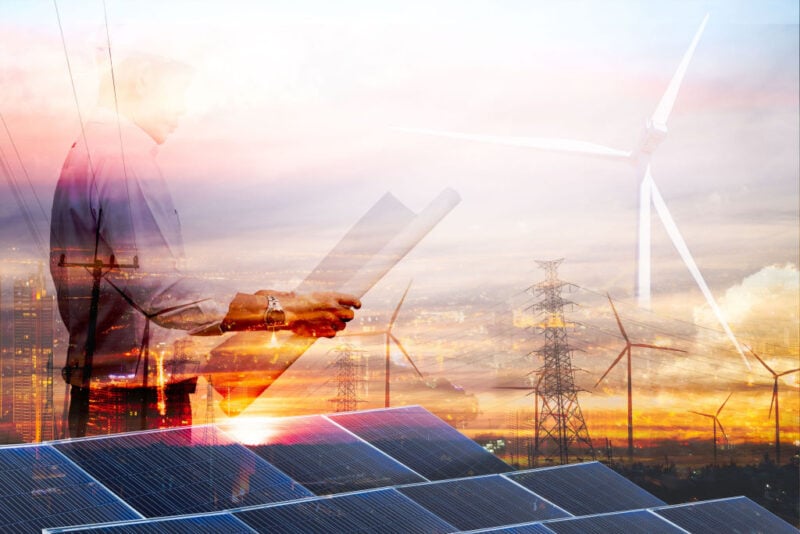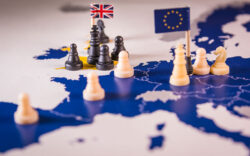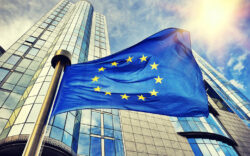A few weeks ago, we discovered that our lockdowns were imposed without considering the economic trade-offs. Former Chancellor Rishi Sunak said it was “wrong to empower scientists” in such a one-sided way. Dissenting voices about the consequences of lockdowns were silenced and erased from the records, according to Sunak. Well, what if that’s true about more than pandemic lockdowns? What if it applies to climate change and our energy policy, too?
That’s not a comment about climate change, just as Sunak’s comments weren’t about Covid. It’s a question of political and economic policy being set by epidemiologists and climate-change scientists. Is it a good idea? Are dissenting voices being silenced to ensure we don’t know whether it’s a good idea?
The thing is, only Europe appears to have believed its own climate-change… rhetoric. And then turned it into policy. The rest of the world implemented very different energy policy than their rhetoric would suggest, prioritising energy supply over the colour of that energy or its source. And then watched Europe actually jump off the climate-change cliff by shutting down its own energy supply.
European Union gas production went from a peak 243 billion cubic metres in 2001 to 44 billion cubic metres in 2021. Crude-oil production peaked in 2004 and then halved. Net electricity generation peaked in 2008.
The EU’s statistics agency describes the 4% decline in electricity generation in 2020 as a “highlight”. Well done, then.
In the US, oil and gas production absolutely boomed after the financial crisis. And so there’s plenty of energy available, keeping gas prices and “gas” prices far lower for Americans.
Blackouts are only an issue in specific US states that have mismanaged their energy supplies in the much same way as Europe. In fact, the shape of California’s oil and gas production profile is quite similar to Europe’s…
In Australia, where governments echo all the green verbiage you’ll hear in Europe, just in a funny accent, vast amounts of coal, oil and gas are nevertheless being produced. Not to mention some of the other industries Europe has in its sights, such as meat. Coal recently topped iron ore to become Australia’s largest export…
In fact, Australia seems to be a bizarre moral mirror of Europe. The Europeans claim the moral high ground by not producing much energy, while buying it from Russia instead, while the Australians export vast amounts of energy and criticise others for being the ones who actually use it…
Japan is being particularly politically incorrect, having just signed a new gas-supply deal with a Russian company. But the seller only recently became a purely Russian supplier after sanctions encouraged a European gas company to sell out of the huge project. It sold to its Russian counterparts, at very good prices – for the Russians. And now the cash is set to flow to Russia and the gas to Japan. Europe gets neither…
So the Japanese are getting theirs, despite hosting Zelensky in Parliament via a video call while I was there. Not compromising your energy supplies for political reasons is a lesson the Japanese learned the hard way in the 1940s…
And not cutting off a nation from its key source of energy is a lesson the Americans learned back then, too. Something which Vladimir Putin may have yet to learn if Europe gets its act together and stops destroying its own economies in a bizarre attempt to help Ukraine…
Hungary recently signed a deal with Gazprom for more gas, too. And China is even selling repackaged Russian gas to the Europeans…
But India offers the best example of what I’m trying to get at today. India’s petroleum minister, with his arms rather firmly folded, told CNBC, “We will buy oil from Russia, we will buy from wherever. A Democratically elected government…”, at which point the news anchor interrupted him to say, “And you don’t have a moral conflict with the Russians, at all?”
But the petroleum minister stuck to his butter: “I have a moral duty to my consumer. Do I as a Democratically elected government want a situation where the petrol pump runs dry? Look at what’s happening in countries around India…”, at which point he was interrupted again.
You’ll never guess which economy overtook the UK’s to become the fifth-largest in the world in 2021. As Fox News put it, “India overtakes former colonial ruler UK to become 5th largest world economy: ‘law of Karma works’”.
I don’t know about karma, but producing your own oil and gas works well. Sanctioning your supplier does not.
Now contrast India’s petroleum minister’s position with Germany’s foreign minister, Baerbock: “If I give the promise to people in Ukraine – We stand with you, as long as you need us – then I want to deliver. No matter what my German voters think, but I want to deliver to the people of Ukraine.”
The Indian petroleum minister has prioritised his domestic oil supply because he is democratically accountable. The German foreign minister is busy making promises to, what is considered by some to be, one of the most corrupt nations in the world, which may go against her own voters’ wishes…
To be fair, her real point was that she would only be willing to give promises on which she can deliver. Don’t let your mouth write cheques you can’t cash, sort of thing. Which is admirable in a politician… if a little unusual.
But what if it’s too late? What if the Europeans have done it already? They’ve made promises they can’t keep. And now the situation that Baerbock wanted to avoid is occurring. The German politicians are committed to Ukraine, but their voters don’t want to freeze on the Eastern Front.
Remember, a few months ago, Baerbock explained to her Canadian colleagues that they needed to break their own sanctions over the Gazprom gas turbine because, “if we don’t get the gas turbine, then we won’t get any more gas, and then we won’t be able to provide any support for Ukraine at all, because we’ll be busy with popular uprisings.”
Well, the gas has stopped flowing, again. Cue the uprisings in Germany. Which she has promised Ukraine to ignore…
In Italy, with an election weeks away, and France, the politicians have cottoned on to this. Marine Le Pen and Matteo Salvini have both argued against sanctions because they’re doing more harm than good.
But back to my point again. The world hasn’t lost the plot on energy policy. It’s only Europe that’s gone mad.
Sure, the Americans, the Canadians, the Australians and the Japanese have been busy toeing the line drawn by Greta Thunberg at publicity events. But they weren’t dumb enough to actually shut down their own gas fields, make themselves reliant on Russian energy, sanction Russia, or impose carbon-emissions trading schemes. They’ve been doing the opposite, with the nuclear revival a welcome latecomer to the energy party… that Germany is also trying to avoid.
It seems to me that only Europe was dumb enough to shut down its own energy production, making itself reliant on others, and then sanction the supplier. And now it doesn’t have the energy left to save the climate. It’s turning to the likes of coal to keep the lights on.
I know what Nigel Farage would say about this. If you give up policymaking power to unelected bureaucrats in Brussels, you can’t reap what they stopped you from sowing. And that might not be so metaphorical, with the Financial Times reporting “Farmers and producers warn of winter food shortages in Europe”, and “Price rises across wide range of products predicted as output is cut back over surging energy costs”.
The good news is that investors can still choose. They can participate in the energy-starved European economy, or they can invest their money elsewhere.
While the energy-heavy UK stock market index, the FTSE 100, is almost flat for 2022, the German Dax has crashed almost 30% at the time of writing…
This is an extraordinary divergence, showing how much investors benefitted from holding dirty energy stocks. Not that a flat stock market is much to cheer given inflation is expected to hit 22% next year…
So, how is Nigel suggesting you invest to potentially profit from that challenge? Find out, here.

Nick Hubble
Editor, Fortune & Freedom




